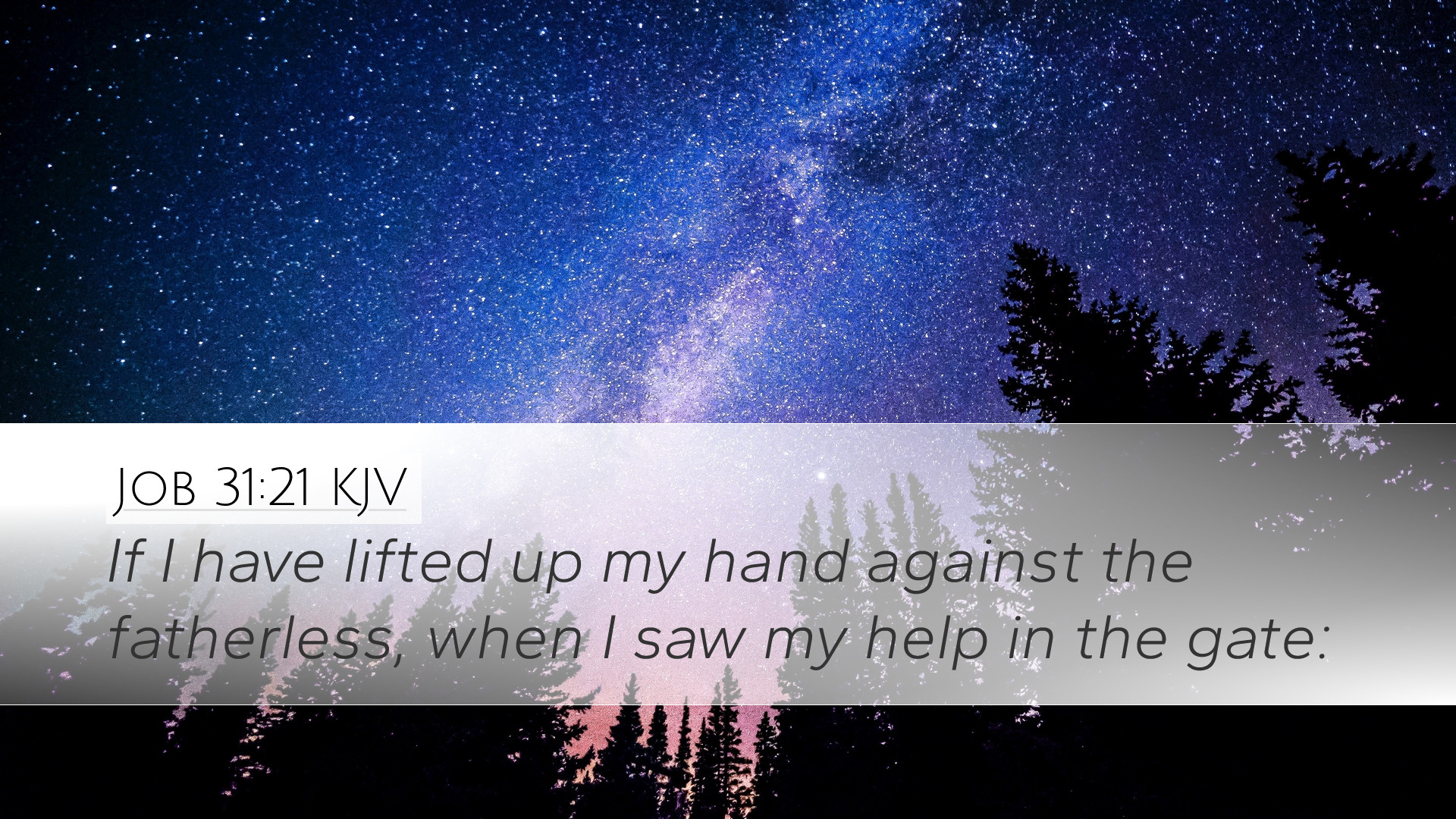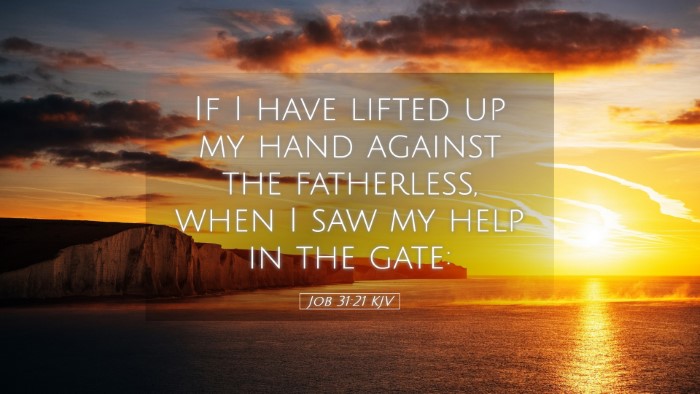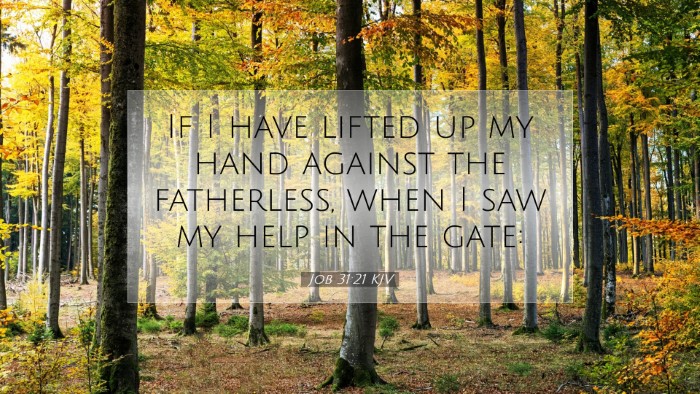Commentary on Job 31:21
Introduction: Job 31:21 presents a profound reflection on the moral implications of social responsibility, personal integrity, and the consequences of injustice. As we unpack this verse, insights from notable public domain commentaries, including Matthew Henry, Albert Barnes, and Adam Clarke, will provide depth and understanding. This analysis aims to equip pastors, students, theologians, and Bible scholars with valuable interpretations and applications of Job's declaration in this verse.
Verse Text
"If I have lifted up my hand against the fatherless, when I saw my help in the gate." (Job 31:21, KJV)
Contextual Background
Job's Defense: This verse is part of Job's final discourses where he defends his integrity against the accusations of his friends. Throughout Job 31, he outlines his moral rectitude and commitment to righteousness, addressing various sins he has avoided. As Job grapples with the suffering and loss in his life, he appeals to his past conduct as evidence of his uprightness.
Commentary Insights
1. Job's Ethical Standards
Matthew Henry: Henry emphasizes Job's declaration as a commitment not just to personal piety but to social justice. Lifting one’s hand against the fatherless is a metaphorical expression of taking advantage of the vulnerable. Job's refrain from such actions underscores his awareness of the moral responsibilities that come with wealth and power. It is a call for protection and advocacy for the powerless, highlighting a key biblical principle of equity.
2. The Significance of the Gates
Albert Barnes: Barnes notes that the "gate" in ancient cities was the place of judgment and societal matters. Thus, Job's reference to seeing "my help in the gate" suggests that he recognized the role of justice within the public sphere. His argument is that rather than exploiting the fatherless, he sought to defend them when he had the power to do so. Barnes emphasizes that true integrity is manifested through actions, particularly in treatment towards those who are marginalized.
3. The Weight of Responsibility
Adam Clarke: Clarke delves into the implications of Job's statement regarding the responsibilities that come with authority. He reflects on the broader theme of corporate responsibility, asserting that those in positions of power must act with discernment and justice. Job's integrity is highlighted in his refusal to engage in oppression or despotism; he demonstrates that righteousness involves actively standing against injustice rather than passively observing it.
Applications for Today
The insights derived from Job 31:21 encourage a multi-faceted approach to justice and moral living that resonates with both contemporary and historical contexts.
- Advocacy for the Vulnerable: Just as Job defended the fatherless, modern believers are called to advocate for those who cannot defend themselves. This entails active participation in social justice movements and ensuring that the marginalized receive the support and protection they deserve.
- Personal Integrity: The verse serves as a reminder that true integrity extends beyond personal behaviors to encompass societal engagement. Leaders and individuals alike must embody ethical standards that promote fairness and justice in their communities.
- Historical Context: Understanding the cultural and historical significance of this passage enhances its relevance today. Job's era valued communal responsibility, which should inspire contemporary faith communities to embrace similar values.
Conclusion
Job 31:21 stands as a testimony to personal integrity and social responsibility. The reflections from Matthew Henry, Albert Barnes, and Adam Clarke collectively underscore a theological and ethical framework that challenges believers to pursue justice actively and protect the vulnerable. This verse is not merely a relic of ancient poetry; instead, it serves as a clarion call for ongoing reflection and action in our current contexts, reminding us that our integrity must encompass the needs and rights of others.


